UK faces vaccine shortfall, could delay shots for under 50s
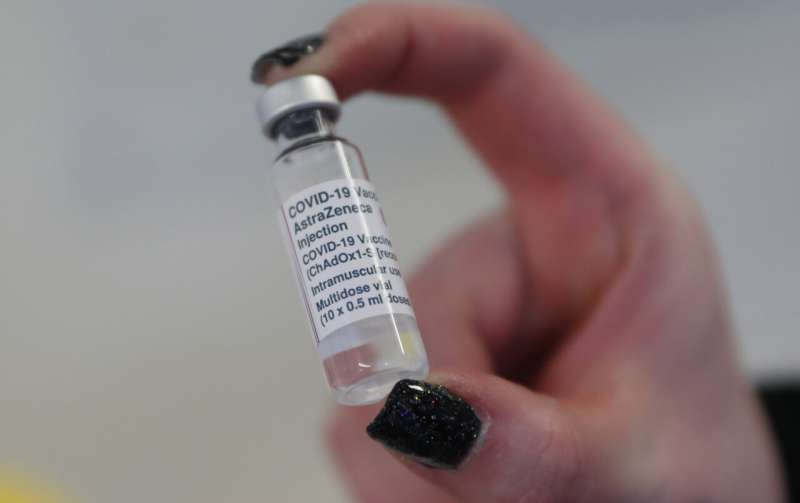
Britain is facing a shortfall in COVID-19 vaccine supplies that may delay the start of shots for people under 50 after deliveries from two suppliers were curtailed due to production and testing issues.
Health Secretary Matt Hancock said Thursday that 1.7 million doses of vaccine had been delayed because the shipment had to be retested. Some deliveries from the Serum Institute of India have also been delayed, he said, without explaining why.
“Events like this are to be expected in a new manufacturing endeavor of this complexity,” Hancock told the House of Commons.
Hancock’s comments came a day after the National Health Service told doctors that vaccine supplies would be “significantly constrained” beginning March 29. As a result, people under 50 shouldn’t be inoculated for the time being, unless they have underlying health conditions that put them at higher risk from COVID-19, the NHS said in a letter to public health officials.
The news damped the hopes of some doctors who had expected to begin vaccinating younger people next month. This next phase of the vaccination program is likely be pushed back until May, said Dr. Martin Marshall, the chairman of the Royal College of General Practitioners who works in east London.
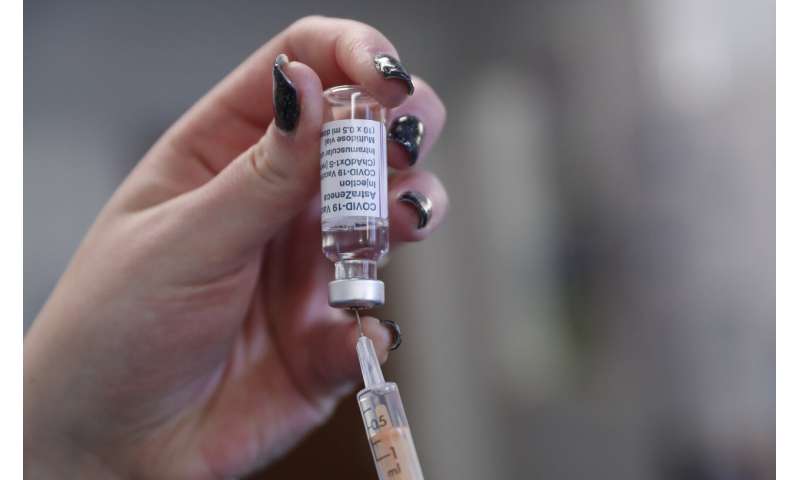
“It was disappointing news when we heard yesterday that the supplies weren’t going to be available during April,” he told the BBC. “It’s a massively successful program overall, and this is a bit of a setback.”
Despite the supply constraints, the government still expects to meet its target of delivering a first dose of vaccine to everyone over 50 by mid-April and to all adults by July 31, Hancock said. He also said no vaccination appointments would be canceled and everyone who has received a first dose will get their second shot on schedule.
Britain is currently using vaccines developed by U.S. drugmaker Pfizer and Anglo-Swedish rival AstraZeneca, with vaccine deliveries from Moderna expected to start soon. More than 25 million people across the U.K., or almost 38% of its population, have received at least one dose of vaccine so far.
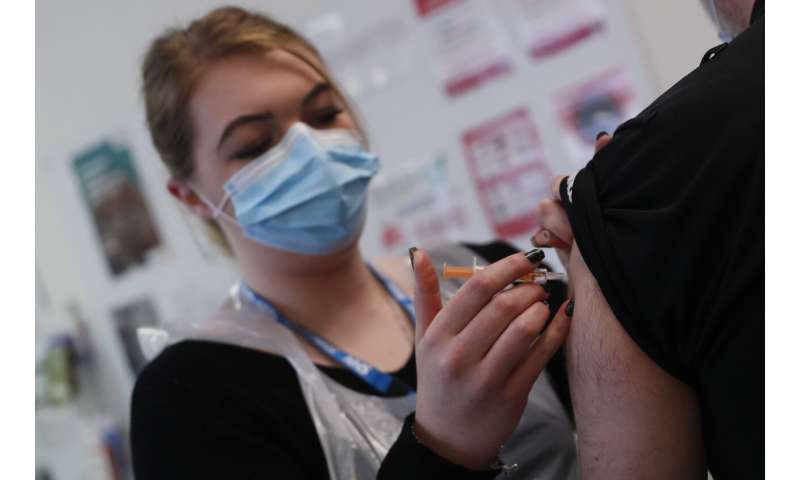
The nation’s medicines regulator on Thursday recommended that people continue to receive the AstraZeneca vaccine, despite concerns about blood clots raised in some European countries.
The Medicines and Healthcare Products Regulatory Agency said a “rigorous review” of all the data available found no evidence that the AstraZeneca vaccine caused clots in veins.
Another review of five U.K. cases involving a rare type of clot in the brain is under way. This type of clot, which can occur naturally, has been reported in fewer than 1 in every million people vaccinated and no causal link to the vaccine has been established, the MHRA said.
“The MHRA’s advice remains that the benefits of the vaccines against COVID-19 continue to outweigh any risks and that the public should continue to get their vaccine when invited to do so,” the agency said.
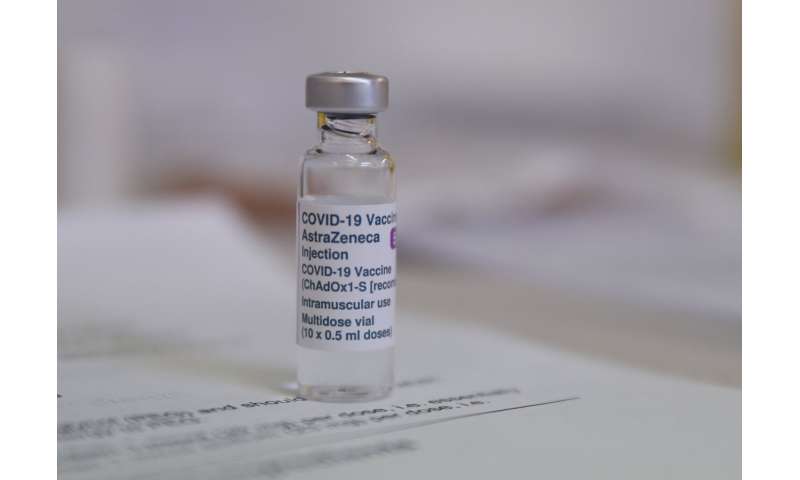
COVID-19 has killed some 126,000 people in Britain, the highest toll in Europe.
The government had previously said that the Serum Institute of India, the world’s biggest vaccine maker, would supply Britain with 10 million doses of the AstraZeneca shot this month. But the Serum Institute said Thursday that there were no “stipulated timelines” for delivery of the vaccine.
The company said 5 million doses have already been delivered “and we will try to supply more later, based on the current situation and the requirement for the government immunization program in India.”
India’s foreign ministry said this month that vaccine exports would be calibrated to domestic production, “as well as requirements of our national vaccine program.”
COVID-19 is linked to more than 159,000 deaths in India, the world’s fourth-highest death toll.
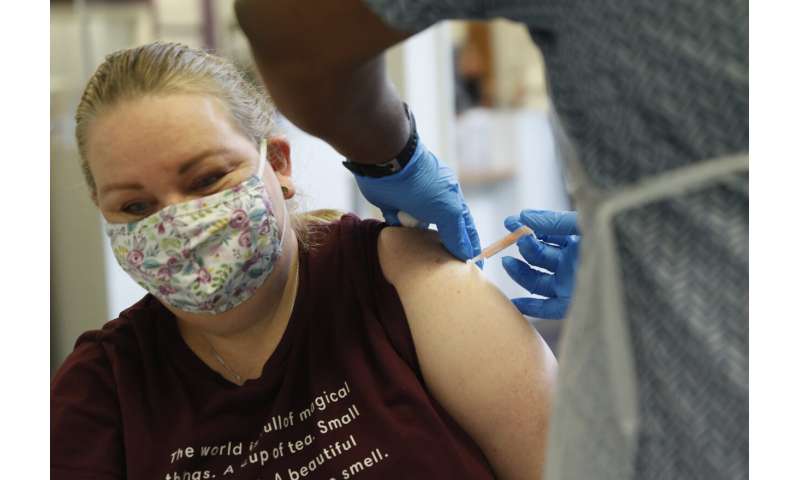

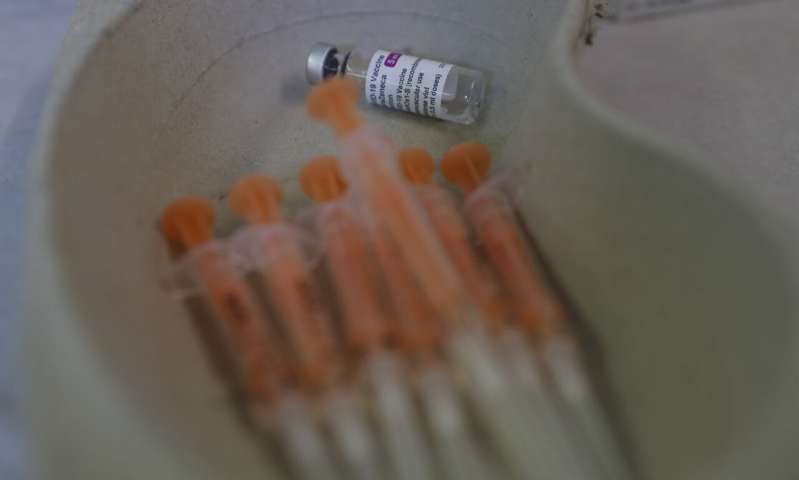
Dr. Simon Clarke, associate professor of cellular microbiology at the University of Reading, said the disruption in U.K. vaccine supplies is more than just a “bump in the road.” It could have knock-on effects that last for months, including potential delays in lifting COVID-19 restrictions, he said.
Prime Minister Boris Johnson has announced plans to slowly lift a national lockdown in England, though some measures are expected to remain in place until late June. Scotland, Northern Ireland and Wales have also begun to ease restrictions. With the lockdown expected to last past Easter, Britons have been looking at summer holidays as a way to make up for months of living under heavy restrictions.
Source: Read Full Article
